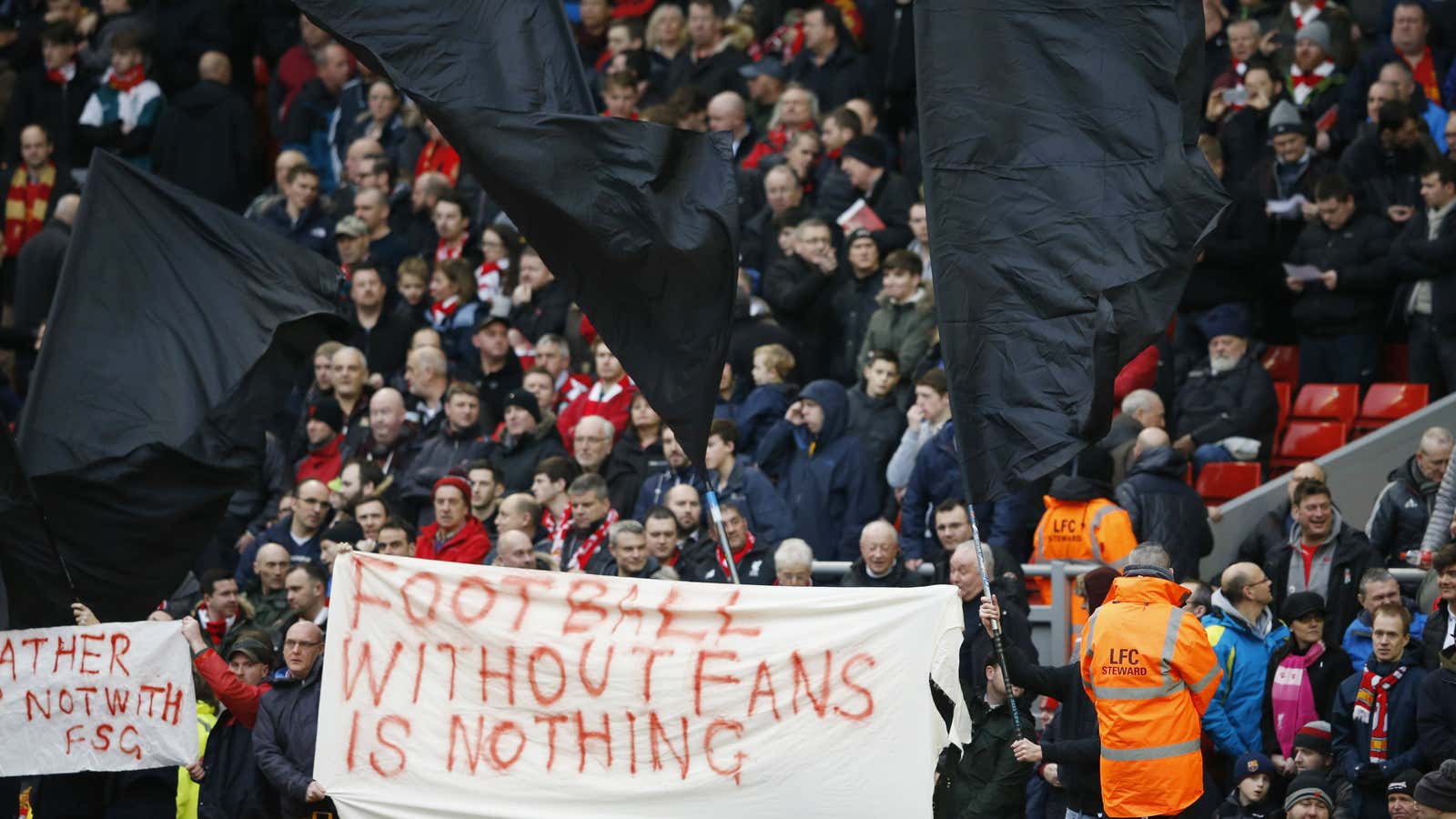The English Premier League—the world’s most popular and lucrative soccer league—is widely heralded as a spectacle largely due to the exhilarating atmosphere created by fans in the stadium. But that could change soon as fans of different clubs are finally beginning to openly fight back against high match-day ticket prices and are threatening boycotts. Compared to other big leagues in Europe, match-going fans in England pay the most. To put it in context, it costs as much to travel from England to Germany to see a game than attend one in England.
The high ticket prices have been drawing ire over the years but it appears things have reached a breaking point. Around 10,000 fans of Liverpool, one of England’s most historic and successful clubs, staged a walk-out during the club’s last league game in protest over next season’s ticket prices which could be as high as £77. And their action has triggered a wider campaign as fans’ groups such as the Football Supporters Federation (FSF) have announced that more mass walkouts during live games could be in the offing.
“The FSF will be convening a meeting of representatives of supporters’ organisations across the Premier League to discuss the next steps in the campaign. There are a number of options,” Kevin Miles, FSF CEO told The Telegraph.
“The Liverpool walkout very successfully highlighted the whole issue of the affordability of football and the clubs need to be made to listen.”
It is easy to see the fans’ point. Purists suggest that the influx of billions of dollars from broadcast deals and sponsorship for the clubs ought to make for cheaper pricing schemes for fans but that is not the case. Ticket prices have surged 1,000% in the last two decades just as clubs’ TV revenue have risen.
The argument is that with clubs making so much money from corporate streams, they can afford to ease ticket pricing for fans. Last year, match-day revenue accounted for less 20% of earnings for the league’s 20 clubs. While domestic TV contracts and corporate deals collectively earned clubs around £2.7 billion, match-day revenue only generated around £600 million.
Some clubs understand the fan’s sentiment. “Set against other revenues, ticket income is not as important as it once was,” David Sullivan, co-owner of West Ham United, has said. Other clubs will likely argue that the prices are reflective of the economics of the game but such cold-blooded boardroom thinking will not be accepted in the stands where the thriving emotion is passion. For fans, it is a rather simple matter: the clubs they support all their lives and with all their heart should not be making them pay through the noses for it.
